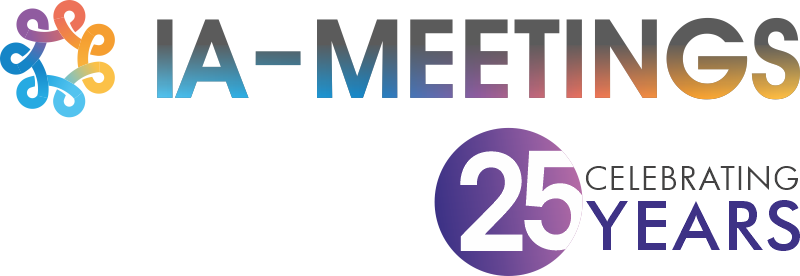Over the past two decades, the events industry has faced significant challenges, including technological advancement, leaving many brands and companies uncertain about how to plan conferences in 2024 and beyond.
Organizing an international conference involves many things with a proper process, but fear not! This blog will guide you through everything you need to consider from an expert’s standpoint, ensuring a successful and seamless event.
We would recommend that, primarily, when arranging your conference, prioritize your major milestone tasks. These tasks demand the most time and potentially more budget. It’s crucial to understand their duration and allocate sufficient budget, leaving room for adjustments.
Present Challenges in International Conference Planning
Success in conferences is gauged across two primary dimensions: the beneficial influence it imparts on participants and its return on investment (ROI) and profitability. The intricate balance between these dimensions has always come with some hindrances and struggles, which have further intensified in the current scenario.
Conference organizers and companies now face the daunting task of harmonizing the creation of a profoundly impactful event with financial viability amidst a host of additional hurdles, including:
– Escalating costs fueled by inflation.
– Staffing issues.
– Supply chain disruptions.
At the more practical level, the hurdle involves managing expenses while safeguarding audience engagement levels. So, we will explore strategies and steps for organizing a remarkable international conference effectively amid these challenges.
Steps & Guidelines On Organizing International Conference
1. Develop Your Event Strategy
Whether you’re orchestrating an annual round-up conference to delineate achievements and future plans or coordinating a networking event to engage with industry peers on evolving trends, your primary and most crucial step is defining the objectives of your event.
Understanding your goals and anticipated outcomes is not a choice; instead, it is a necessity for all international conferences, particularly corporate and higher-budget affairs. This understanding aids in budget formulation, ensuring resources are allocated efficiently to yield optimal returns.
2. Strategically Manage Your Budget
Unlike many events, conferences aren’t primarily profit-driven. As an organizer, comprehending the value derived from hosting such an event is crucial. Allocating resources judiciously to areas promising beneficial outcomes for your business or staff is essential. While profitability might not be the primary aim, avoiding losses is imperative.
Moreover, checking the data from past conferences can offer valuable insights into what strategies worked and what didn’t. Also, integrating registration fees and potential sponsorships into the budget maximizes available resources.
3. Embrace Diverse Technologies
Some companies make the mistake of underestimating the pivotal role of technology in making conferences and events successful. Therefore, when planning a conference, it’s vital to evaluate the array of technological options, including live, virtual, and hybrid formats, tailoring the approach to suit the diverse preferences of attendees.
Event companies can leverage various technologies to create seamlessly integrated live and virtual experiences. Understanding these options empowers strategic decision-making in shaping the conference experience.
4. Selecting the Right Venue
Choosing the appropriate venue is a critical aspect of an international conference, contingent upon whether it’s a live, virtual, or hybrid event.
For live conferences, considerations include space, breakout areas, catering facilities, location, and accessibility. Virtual or hybrid events necessitate evaluating venue suitability for filming, such as dedicated studios or on-site setups for live streaming.
Additionally, venue amenities like staging, lighting, AV equipment, seating, and acoustics should align with event requirements.
5. Securing Sponsorships
Prepare the conference agenda and sponsorship packages by tier, then approach potential sponsors. It’s important to recognize that they might be facing challenges such as rising costs, staffing issues, or disruptions in the supply chain. Finding common ground on these fronts can facilitate closing the deal.
While emphasizing the immediate value the event offers, keep in mind the long-term potential of the relationship and the ongoing opportunities for value creation. Consider partnering with a Professional Conference Organizer (PCO) like IA-Meetings who possess connections with sponsors in your industry and can assist you through organizing an outstanding conference and other events.
6. Choosing Guest Speakers
In the realm of conference management, securing a guest speaker is a proven strategy for enhancing conferences. The options for guest speakers are abundant, allowing you to select someone who not only resonates with your attendees but also inspires and enriches your event.
Bringing a relevant and compelling guest speaker on board also serves as a catalyst for attracting the right audience. However, it’s important to be mindful of the expenses associated with booking a guest speaker.
The fees and additional costs vary depending on the speaker’s caliber. For instance, inviting a successful alumni speaker from an academic background might only require covering accommodation, travel, and a modest fee. Conversely, booking a high-profile speaker entails allocating a larger budget and potentially covering more expenses.
7. Attracting International Audience
The conference website and social media channels serve as initial touchpoints with potential attendees. Employing both inbound and outbound marketing strategies is recommended to extend reach to a global audience.
Email marketing, as an outbound tactic, complements the event’s online presence and fosters personalized engagement with the audience.
Relevance, consistency, and personalization in promotional materials and email communications are pivotal for fostering meaningful interactions, ultimately driving higher registration numbers from the international audience.
8. On The Day Of Conference
Finally, the awaited day dawns, heralding the fruition of your diligent efforts. Ensure flawless execution of your event by coordinating effectively with your team members regarding their roles and responsibilities, ensuring the adequacy of the sound system and other essential materials.
Conduct a rehearsal the day before to familiarize everyone with the proceedings and cultivate the desired ambiance. Communicate with the caterers to oversee food management and ensure that everything proceeds according to plan.
Conclusion
Here are the fundamental 8 steps essential for organizing any conference, crucial for ensuring the success of your event. Strive to initiate planning well in advance, allocate resources wisely, and exert maximum effort. If you find managing all aspects challenging, consider engaging the services of a conference management company.
